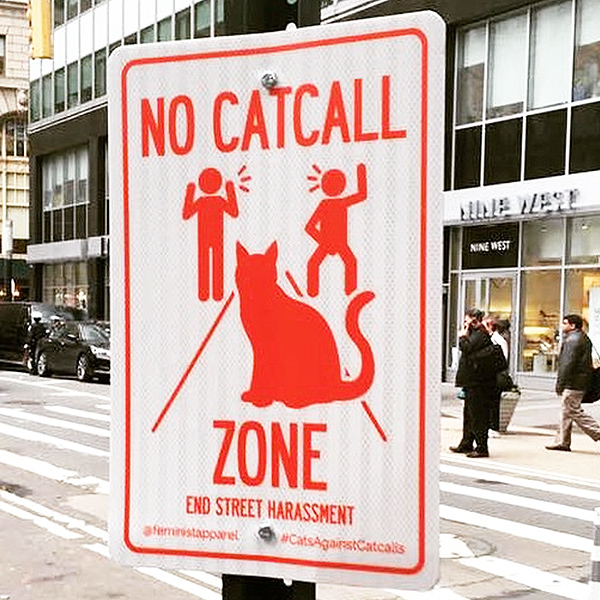
The recent appearance of “No Cat Calling Zone” signs that have popped up on New York City streets is raising the question about remarking on people’s appearance, especially men to women.The signs are an attempt to draw attention to how that cat calling makes women and men, too, feel. Many feel objectified by those rude comments and some even feel physically threatened.
I think this also opens up another discussion…is it ever okay to offer a personal compliment to a co-worker?
To work in an environment where no one compliments anyone could be a pretty sterile environment. But I do think it is important to be careful about whom you compliment and how you do it. The tone and content of the compliment make all the difference in how it is perceived. Some compliments are loaded with innuendo.
The relationship of the person giving the compliment to the person receiving the compliment is important, as well. A superior complimenting a subordinate on what they are wearing or how they look could be interpreted as harassment or an attempt to diminish the personal authority of the subordinate. Especially, if it is a male superior making the comment to a female subordinate.
However, co-workers who know each other well and have a healthy work relationship probably wouldn’t be damaged or feel threatened by hearing that someone likes their jacket. Regardless of whether the compliment came from a man or a woman.
The compliments and remarks to avoid and that can cause a big ripple at work are the ones that can sound sexist. For instance, the suggestion that someone looks “hot” in something or anything pointed about body parts should be avoided at all costs. What one would say to compliment a date, probably shouldn’t be said to someone at work.
While I don’t think it’s okay for people to make comments just because a woman or man, for that matter, is wearing something sexy. I do think that woman should be cautious about wearing clothes that are too tight, too short, or too low in the work place.
Research tells us that women are judged more severely by what they wear than men, not fair, but it is true. So, that is another reason, women in particular, should be judicious about what they wear to work. Even if no one says anything out loud, sexy clothes at work are distracting for everyone.
So, should you offer a compliment to someone at work on their appearance? It isn’t a black or white answer, but when in doubt, don’t say it out loud. Consider complimenting the person on their work performance and their professional abilities instead.



